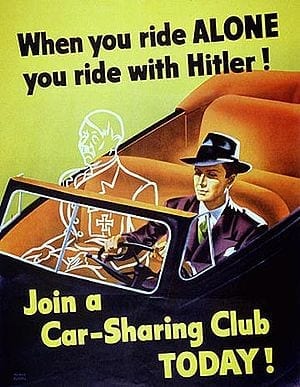Companies that promote the exchange of rides are joining a wave of so-called collaborative consumption sites
The annual ritual of piling into the car for the great American summer road trip has a new twist as more travelers are inviting strangers along for part of the ride.
Long-distance travelers as well as commuters are connecting on sites like Zimride.com, Ridejoy.com, Avego.com, Nuride.com, Rideshare.com and eRideShare.com.
This summer, a German company with a quintessential American name, Carpooling.com, will try to break into the United States market with a trial run in the Northeast. In June, the company announced that 30 million rides had been offered through its 10-year-old network, which now has 3.8 million registered users.
Ride-sharing and car-pooling, it seems, are having a moment in the United States after many fits and starts.
“It’s been a tough sell in the U.S. for a long time,” said David Burwell, director of the energy and climate program at the Carnegie Endowment for International Peace. “A lot is due to not only the fact that people have different places they want to go, but also safety and other concerns about going into a car with strangers.”
What is different now, Mr. Burwell said, is the advancement of digital technology and social networking, “which removed a significant amount of barriers.”
To that end, eRideShare, which was started in 1999, is testing a mobile app this week for iPhone and Android phones. “I see a lot of new entrants this year” as well as new technology, said its founder, Steven Schoeffler. “I think it will be a very interesting time for ride-sharing.”
The sites vary in the process of matching drivers with passengers, security protocols and how payment is calculated and made. Some sites allow participants to settle on the cost of a ride; others charge by mile traveled. The profit-making sites take a percentage of the fee charged to riders, but it’s free to sign up for the service.
Proponents of ride-sharing say that, by design, it is an effective way to reduce congestion and greenhouse gas emission, as well as to save money on gasoline and car maintenance.
via New York Times – Mickey Meece
The Latest Streaming News: Car-Pooling updated minute-by-minute








